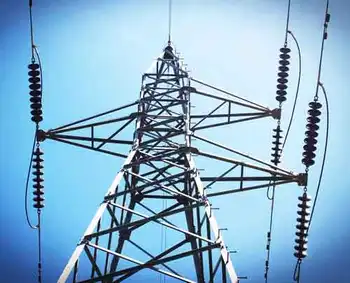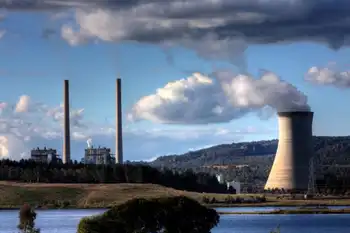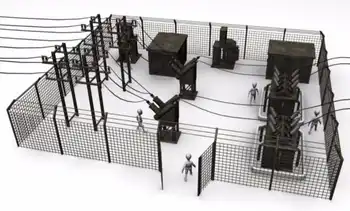Nuclear future must involve the U.S. public
WASHINGTON, D.C. - Things have not looked so good for nuclear power since the dawn of the Atomic Age. The public is more accepting of the potential role of nuclear power than at any time since the early 1970s.
With that in mind, the Blue Ribbon Commission on AmericaÂ’s Nuclear Future, set up by the Administration to review the tricky question of what to do with nuclear waste, needs to take account of the changes in public attitudes to various energy sources over recent years.
We all know what is happening in the Gulf right now. There is a certain amount of public concern — misplaced, in my view — over global warming. There is also a high level of public skepticism over the feasibility of wind and solar power on a grand scale. That means the public is open to learning more about nuclear power. The Commission has the opportunity to get valuable input into its decisions from the public at large. Such public involvement is essential for the Commission’s final report to gain public legitimacy and acceptance.
How should it go about it? One option would be for the Commission, at every stage of its inquiries, to hold Web-based discussion groups, town halls, citizensÂ’ panels, and roundtables, under Article 9 of its charter. These consultations will tell the Commission what is and isnÂ’t feasible in dealing with nuclear waste much more clearly than environmental interests.
The Commission also should ensure a role for innovation when evaluating new technologies and policy options, and consider how its recommendations might affect innovation. An overly restrictive regulatory approach can badly hinder innovation, in particular when certain technologies are mandated to the exclusion of others. In fact, there is a phenomenon known as technology lock that causes technological innovation to stop cold when a technology is required by law.
The Commission should also consider ways in which it can utilize the skills and competitive disciplines of the private sector in the management of nuclear waste. The Commission’s charter states, in section 3d, that it should consider “[o]ptions to make legal and commercial arrangements for the management of used nuclear fuel and nuclear waste.” This would also help foster innovation. Too often, government committees and panels assume that the solution to any problem is more government. A Commission open to the possibility of a non-governmental future for the problem’s solution would be a refreshing change.
Other countries, including Britain and France, have assembled similar bodies to ask similar questions in the recent past. Close readings of those previous reports can provide useful lessons.
For example, the UK’s Committee on Radioactive Waste Management found that one of the strongest areas of dispute between its members was over whether it should recommend that any waste repository be closed as soon as possible. The prime objection emerged from the public inquiry process itself, which allowed airing of the view from various stakeholders that “potential host communities should have a role in decision-making about the form of geological disposal.” This dramatically illustrates the importance of public involvement.
Another lesson is that the Commission should concentrate on exploring — and seeking public comment on — the four options identified as feasible by the British committee: long term interim storage, geological disposal, phased geological disposal, and near-surface disposal of short-lived wastes.
The British review had another interesting finding. Citizen panels and school projects came to conclusions about geological disposal that were much different from those of the so-called stakeholder groups, which were largely made up of special interest pressure groups like Greenpeace and Friends of the Earth.
The citizen panels all came to a strong majority view that geological disposal should form part of any overall strategy — with a strong preference for early geological disposal. The “stakeholder” groups, on the other hand, continued to strongly oppose geological disposal. I suspect that a similar result would obtain here in the United States.
In the UK, the consultation process removed many of the myths and fears surrounding nuclear waste — dispelling notions of toxic sludge that will turn you green or turn spiders into radioactive mutants that can bite you and give you superpowers. The fact that the citizen panels and the environmental groups differ so much undermines the latter’s claims of being “representative.”
In anticipation of such a result, the Commission should explore the feasibility of reviving the Yucca Mountain project. Any public consultation should consider early geological disposal. If the Commission were to conclude that Yucca Mountain is not a feasible option, then it should state its reasons for that finding.
Finally, the Commission must avoid top-down approaches in issuing its recommendations. Experience with repositories for nuclear fuel waste in Finland and Sweden, facilities for both low- and high-level waste in Belgium, and repository programs in Japan and South Korea all have shown that the willingness of potential host communities to participate in repository siting have been essential to the success of those programs.
So, to sum up, the Commission needs to keep a few considerations in mind: DonÂ’t forget or gloss over the non-technical aspects of your work, involve the public, remember the key role of innovation, donÂ’t waste time on interesting but infeasible options, learn from other nations, and, above all, remember that the legitimacy of your findings comes from public acceptance of your conclusions. If the public rejects the CommissionÂ’s work because it was not fully consulted, that would be a wasted opportunity.
Related News

N.B. Power hits pause on large new electricity customers during crypto review
FREDERICTON - N.B. Power says a freeze on servicing new, large-scale industrial customers in the province remains in place over concerns that the cryptocurrency sector's heavy electricity use could be more than the utility can handle.
The Higgs government quietly endorsed the moratorium in a cabinet order in March 2022 and ordered a review of how the sector might affect the reliable electricity supply.
The cabinet order, filed with the Energy and Utilities Board, said N.B. Power had "policy, technical and operational concerns about [its] capacity to service the anticipated additional load demand" from crypto mines.
It said the utility had received "several…




